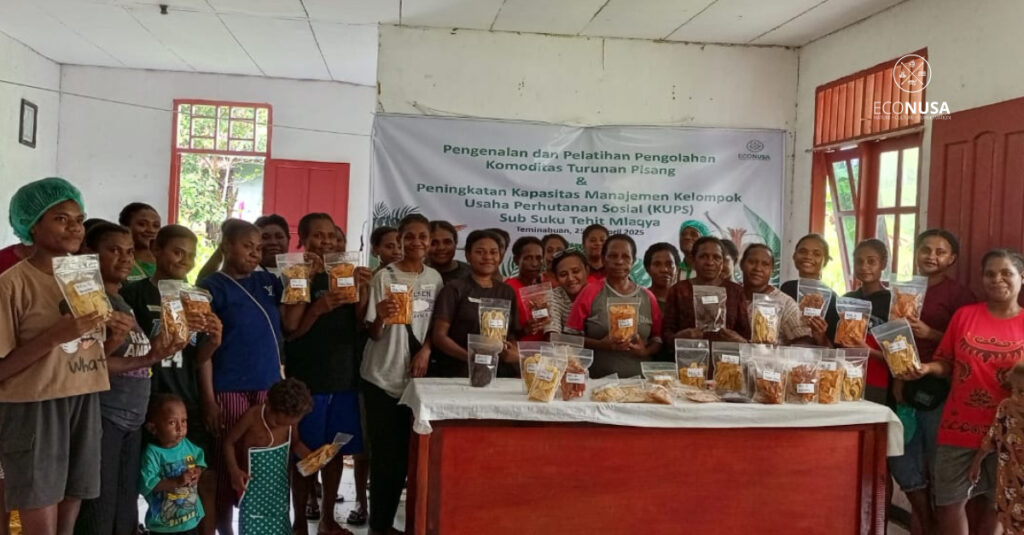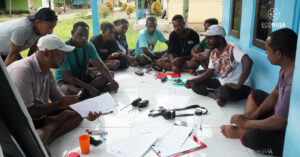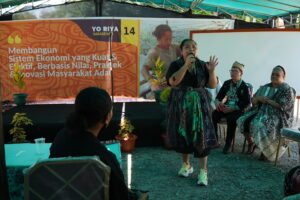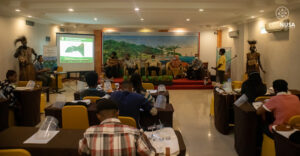
Wersar and Tapiri Villages, located in South Sorong, Southwest Papua, are areas with abundant natural resources, especially in community-based agriculture and plantations. One of the most common and well-grown crops in this region is bananas. Bananas are not only a staple food in daily life but also have high potential to be developed into processed products with significant economic value.
These villages are inhabited by the indigenous Tehit Mlaqya sub-tribe. The community has already formed banana chip processing groups, consisting mostly of women. However, in practice, the groups still face several challenges: limited technical knowledge on proper processing methods, lack of hygiene and food safety standards in production, underdeveloped packaging and labeling designs, and the absence of a systematic marketing strategy.
Also Read: Cashew Nuts from Soa to Enhance Community Resilience
To address these issues, EcoNusa Foundation conducted a capacity-building training for banana chip processing groups on April 25–26, 2025. Through this training, it is hoped that the groups will be able to produce higher quality and visually appealing products that can compete in both local and broader markets. Nearly 50 residents, both women and men, participated in the training, reflecting a strong spirit and initiative to grow local food-based home businesses.
Over the two-day training held at the Tapiri Village Office, the community learned the basics of banana chip production, including hygiene practices during processing to ensure clean and safe chips, proper frying techniques to produce crispy chips, adding various flavors, and managerial skills such as financial recording, calculating production costs, and business planning.
Also Read: Wersar and Tapiri Communities Learned Semi Modern Farming in Village School
The community showed great enthusiasm during the training. “We really welcome and are grateful for EcoNusa’s support in facilitating our business group with this training on processing bananas into marketable banana chips with good quality and various appealing flavors,” said Silpa Konjol, one of the women participants.
In addition to the training, discussions were held with the community to map out remaining challenges. These include the lack of data on banana availability as raw material, no starting capital, the absence of a dedicated production facility, and no list of potential local markets to distribute the products.
There is a need for coordination with local government agencies, especially the Women Empowerment Office and the Department of Industry, Trade, and Cooperatives of South Sorong, to address these issues. A more detailed plan is needed—covering everything from production to marketing—so that the banana chip business can contribute to strengthening the Indigenous community’s economy collectively, empowering women, and preserving traditional knowledge in the sustainable use of natural resources.




